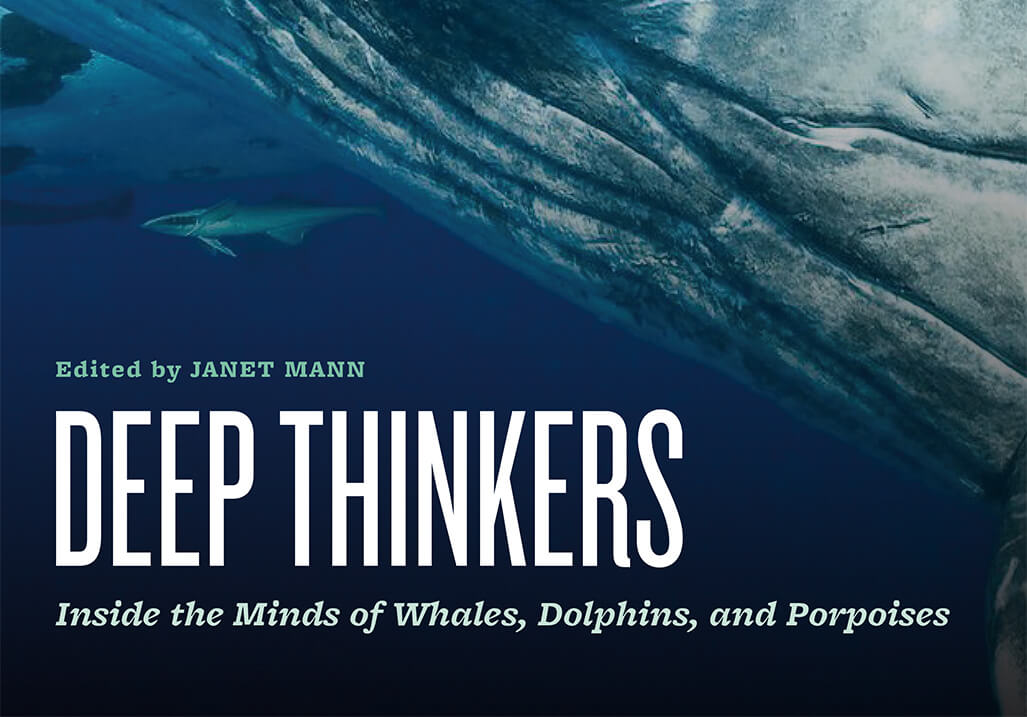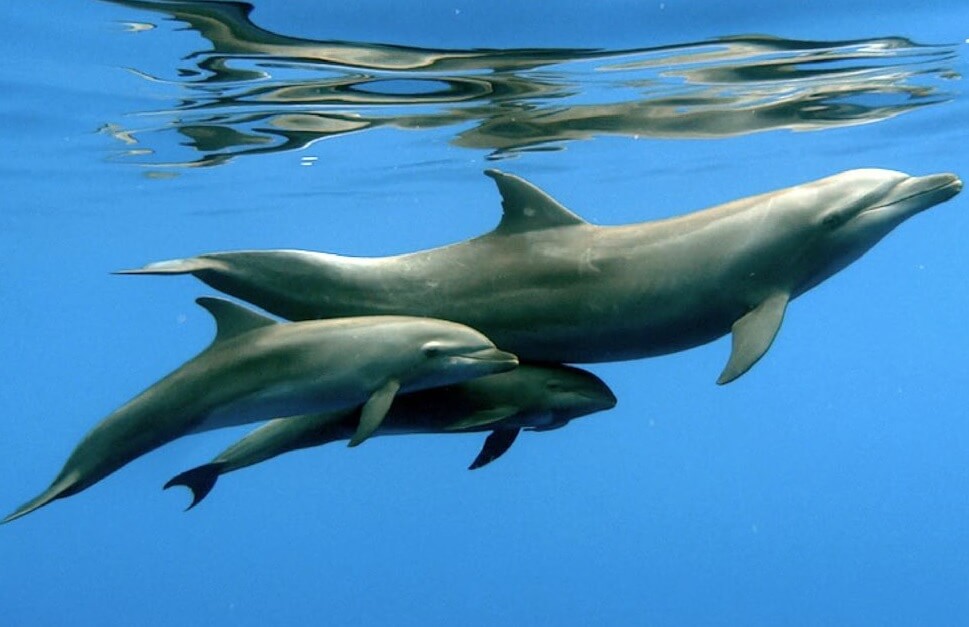A new publication on marine mammals.
Long fascinated by cetacean intelligence, Janet Mann, professor of biology and psychology at Washington, D.C.’s Georgetown University, has compiled the work of researchers specialized in the topic in Deep Thinkers: Inside the Minds of Whales, Dolphins, and Porpoises. Without claiming to resolve the multiple questions raised by marine mammal behaviour, Mann’s work nevertheless succeeds in illustrating the complexity of these animals in a reader-friendly format.
This work is divided into eight chapters, each of which is sub-divided into a series of articles that notably address topics such as cognition and communication in cetaceans, as well as their social ties, their culture and our relationships with them. Did you know that certain species of dolphins develop lasting “friendships”? Or that whale songs can be passed from one population to another? Mann and her collaborators discuss the dynamics that drive cetacean populations, drawing on the work of pioneers in the field such as John Lilly or Wayne Batteau, as well as that of contemporary researchers, including Hal Whitehead.
Deep Thinkers: Inside the Minds of Whales, Dolphins, and Porpoises is a synthesis that is both rigorous and accessible. Its precise references and sources are accompanied by numerous (and superb!) photos, diagrams and illustrations, which will appeal to experts and amateurs alike. However, there is an imbalance between the number of articles that deal with toothed whales such as dolphins or porpoises, and those that pertain to mysticetes or baleen whales. Aware of this disparity, researchers describe the sometimes difficult realities of research by revealing their methods, the tools they use and the factors that can lead to these uncertainties.
Inspired by German philosopher Jakob von Uexüll, Mann affirms that “each species lives in a completely different world while inhabiting the same planet,” illustrating the limits of our perception and understanding. However, she urges us to consider these uncertainties as evidence of the richness of the cetacean universe rather than as gaps, and believes that the well-being of these animals should not be sacrificed in favour of more effective but invasive research methods, for example.
An easy-to-consult, nuanced work that, without claiming to be exhaustive, paints an accurate and comprehensive picture of the most recent discoveries.






